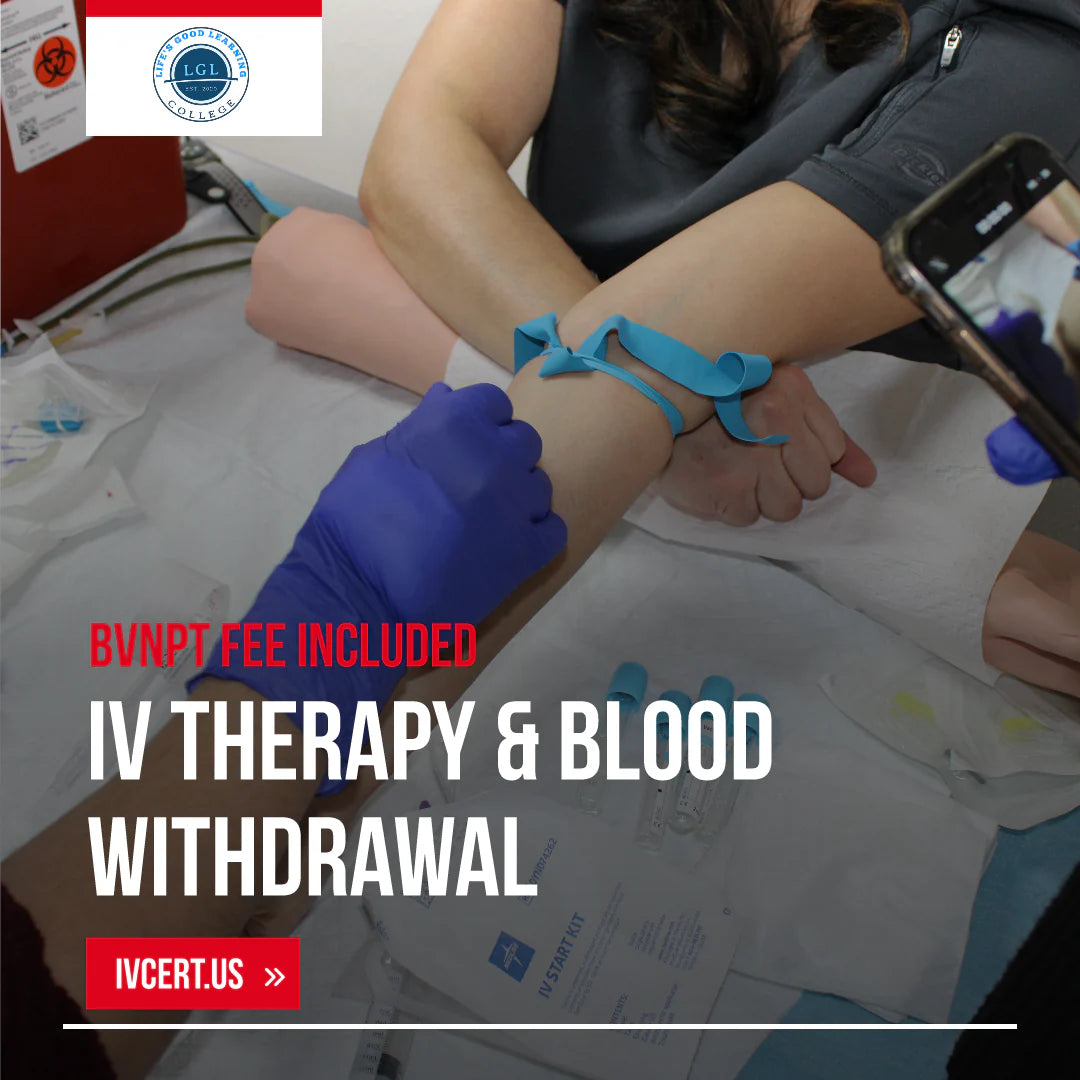
How to Choose the Right IV Certification Course Near You
Compartir
What Is IV Certification and Why It Matters
IV certification is a credential that verifies a healthcare professional has been trained in intravenous (IV) therapy. This includes the proper insertion, maintenance, and removal of IV lines, as well as understanding the fluids and medications administered through them.
Why does it matter? Because IV therapy is a fundamental skill in clinical care. From emergency rooms to long-term care facilities, the ability to safely and effectively perform IV procedures is essential. An IV-certified professional is more confident, efficient, and qualified to handle critical patient needs.
Who Needs IV Therapy Certification
IV certification is not just for registered nurses. It is commonly required or recommended for:
-
Licensed Vocational Nurses (LVNs)
-
Licensed Practical Nurses (LPNs)
-
Paramedics
-
Medical Assistants
-
Dental Nurses
-
Phlebotomists (in certain states)
In some states, IV certification is a legal requirement before an LVN or LPN can initiate or monitor IV therapy. Even if it's not required, having this certification strengthens your qualifications.
Types of IV Certification Courses Available
There are a few formats of IV certification courses to consider:
-
Basic IV Therapy Course: Covers fundamentals such as venipuncture, catheter insertion, and fluid administration.
-
IV Therapy and Blood Withdrawal Certification: Combines IV skills with techniques for safely drawing blood.
-
IV Therapy with Pharmacology: Adds medication safety and dosage calculations.
-
Refresher IV Courses: For professionals who need to renew or sharpen their skills.
The course you choose should align with your current license level, state requirements, and career goals.
In-Person vs. Online IV Certification: Pros & Cons
Choosing between online and in-person IV classes depends on your schedule, learning style, and location.
In-Person IV Courses:
-
Hands-on practice with equipment
-
Face-to-face instruction and feedback
-
Immediate testing and skills check-offs
Online IV Courses:
-
Learn at your own pace
-
More flexible scheduling
-
Often includes a blended format with in-person skills testing
Always confirm whether your state board of nursing accepts online or hybrid certifications.
How to Find IV Certification Classes Near You
Start with a focused search using keywords like:
-
IV certification classes near me
-
IV therapy training near me
-
IV therapy and blood withdrawal course
Check reputable sites like:
-
Local community colleges and nursing schools
-
State board of nursing websites
-
American Red Cross
-
Continuing education centers
-
Accredited online course providers with local testing partners
Be sure to confirm the course is state-approved and provides the certificate you need for employment or licensure.
What to Expect During an IV Certification Course
Most IV certification courses follow a similar structure:
-
Lecture-based instruction on anatomy, fluid types, infection control, and complications
-
Demonstration videos or live practice on mannequins or simulation arms
-
Hands-on practice with venipuncture and catheter techniques
-
Written exam to test theoretical knowledge
-
Skills test to ensure competence in real-life procedures
Courses typically take 1 to 3 days depending on the intensity and whether they include blood withdrawal.
Tips for Passing Your IV Training Successfully
To make the most of your IV certification course, try the following:
-
Review anatomy and physiology, especially veins and circulatory systems
-
Practice basic math skills for calculating fluid volumes and drip rates
-
Watch procedure videos ahead of time on platforms like YouTube
-
Arrive early to your in-person training for better practice opportunities
-
Ask questions during class—instructors appreciate engagement
-
Pair up with a study partner if you can; teach each other the skills
-
Use flashcards or a cheat sheet to retain key safety protocols
Getting Started: Enroll in a Local or Online Class
Once you've chosen the right course, the next step is registration. Here’s how to move forward:
-
Check eligibility (usually requires an LVN, LPN, RN, or MA license)
-
Select a state-approved provider
-
Pick a course date that fits your schedule
-
Choose online or in-person based on your needs
-
Gather required documentation (ID, license number)
-
Pay the course fee (usually ranges from $200–$400)
After completing the course, you’ll receive a certificate of completion—often valid for 2–3 years.
IV Certification for LVNs and RNs
LVNs (or LPNs) are among the most common groups seeking IV certification. In many states, they are not legally permitted to start or manage IV therapy unless they complete a board-approved IV course.
For RNs, while it may not be required, it can still be a valuable skill, especially in hospitals, home health, or infusion clinics.
Nurses looking to advance or specialize (e.g. in oncology, emergency medicine, or geriatrics) often benefit from adding IV therapy and blood withdrawal to their skillset.
Common Mistakes to Avoid When Choosing a Course
Choosing the wrong IV certification course can cost you time and money. Watch out for these mistakes:
-
Not checking state approval – Make sure the course is recognized by your state board of nursing
-
Assuming online means no hands-on skills required – Most certifications still require in-person skills check-offs
-
Picking the cheapest course without researching reviews or credentials
-
Forgetting to check employer requirements – Some facilities require specific certifications
-
Skipping blood withdrawal when it's also needed for your job
How IV Certification Boosts Career Opportunities
Getting certified in IV therapy opens the door to new roles and higher pay:
-
Hospitals and ERs prefer nurses with IV competency
-
Home healthcare and hospice agencies require IV-certified staff
-
Travel nursing contracts often prioritize IV-certified applicants
-
Clinics and infusion centers depend on IV-trained nurses daily
Plus, it signals that you're committed to clinical excellence—a major asset in today’s competitive job market.

